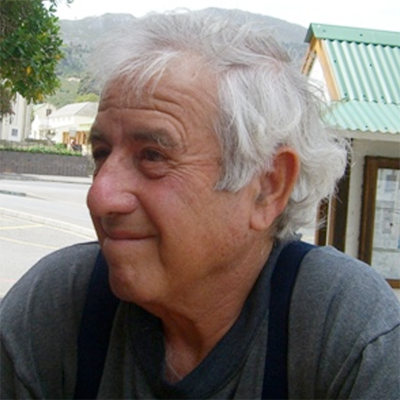 May You Live in Interesting Times
May You Live in Interesting Times
Picture young lovers
nineteen or thereabouts
he, third son, Druze, hewed from Golan oak
descendant of honorable generations—
proud mustachioed builders, soil tillers—
sent to Damascus to study medicine
in his knapsack a book of poems by Khalil Gibran—
she, younger child of holocaust survivors
somehow still a dreamer playing her soft guitar—
father who bulldozed his tank into fortified dug-outs
brother, now in poppies, felled by an October bullet,
chance meeting on some rocky outcropping
birds-view-soar above blue sea of Galilee
winking like a pool of tears clenched between
the mountains' clasped palms—
he turns a thumbed page, she strums a chord—
implausible you say, but yes it could happen
as in the distance volcano ash, an oil spill,
ships steaming into barricades, the Holy City
domes, minarets and churches, synagogues
echoing calls of allegiance twisting
into a hard-faced dawn.
Picture indigo children
sipping soda pops, computer games, flashing knives,
swords, dragon-slaying weaponry, winging airless space
clad only in the stuff of dreams—from broken homes
in London, 9/11, Sri Lanka, Tehran, Chernobyl survivors
entangled in 2012 predictions, planetary upheavals,
underground eruptions, rearranging continents—
they're meeting on the Internet, chatting Facebook language
comparing notes, Deezer songs, eyeing each other across rhythms,
jangling riffs interspersed with narrations of sorrow and desire.
Picture a pair of star-crossed backpackers
fresh from college, traveling the planet
hand in hand, continent and ocean, arriving Port-au-Prince
11th January, as from the guest house window a day unfolds,
watch with them as while the serpent underground slumbers,
people rise, go about their labors, forget dreams, demons,
shake heads, wash eyes, study their outlines in mirrors,
pour from streets into their daily business,
trams rumble by, motorized millipedes, smells of coffee, fresh bread rolls,
shouts of fruit vendors, barrows with sweetmeats,
as on a street corner outside the United Nations relief agency
an old man arranges a pile of fragrant herbs on a wooden crate.
It's just another tropical summer day, children on the third floor
prepare satchels for school, sandwiches neat in lunch boxes,
their teacher, 23, has never seen a serpent, tectonic plates far from
her imagining, outside gaily clad thousands throng the day.
Now the serpent stirs. Tomorrow, children, old man, relief workers,
dreamers, backpackers, vendors of bread rolls, sweetmeats,
thousands buried, broken, bleeding under smoking rubble underground.
The serpent turns, two hundred years has passed,
the world stops whirling for a moment, stands aghast, counts casualties.
Night falls. Outside, hordes of civilizations, religions, do battle
destroy one another, build houses of worship on ruins
of their enemies, iron boots on throats, quoting a single
fire god's words, victorious hymns of hatred—
and we're confused by all the blind cacophony, wish to
close the shutters, pull up our eiderdowns. All we wanted
was a little quiet, a place to meditate, read a Jane Austen novel,
go back to horseless carriages, gaslights in streets, plagues, pestilence
infant mortality, life spans of 35, Robert and Clara singing their sweet beauty
against the backdrop of the fate we know awaits them both.








